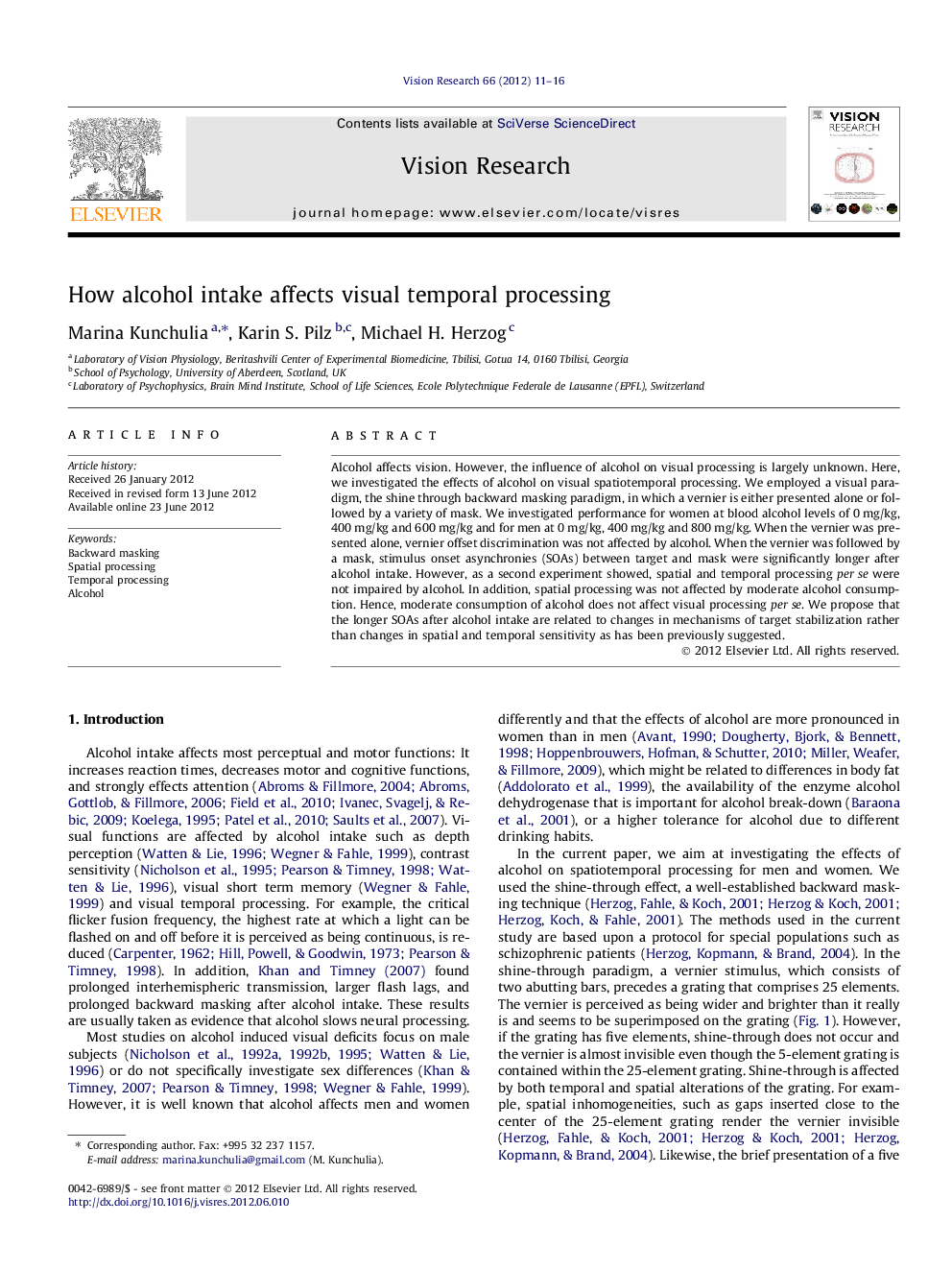| Article ID | Journal | Published Year | Pages | File Type |
|---|---|---|---|---|
| 4033981 | Vision Research | 2012 | 6 Pages |
Alcohol affects vision. However, the influence of alcohol on visual processing is largely unknown. Here, we investigated the effects of alcohol on visual spatiotemporal processing. We employed a visual paradigm, the shine through backward masking paradigm, in which a vernier is either presented alone or followed by a variety of mask. We investigated performance for women at blood alcohol levels of 0 mg/kg, 400 mg/kg and 600 mg/kg and for men at 0 mg/kg, 400 mg/kg and 800 mg/kg. When the vernier was presented alone, vernier offset discrimination was not affected by alcohol. When the vernier was followed by a mask, stimulus onset asynchronies (SOAs) between target and mask were significantly longer after alcohol intake. However, as a second experiment showed, spatial and temporal processing per se were not impaired by alcohol. In addition, spatial processing was not affected by moderate alcohol consumption. Hence, moderate consumption of alcohol does not affect visual processing per se. We propose that the longer SOAs after alcohol intake are related to changes in mechanisms of target stabilization rather than changes in spatial and temporal sensitivity as has been previously suggested.
► We investigated the effects of alcohol on visual spatiotemporal processing using a backward masking paradigm. ► Moderate consumption of alcohol does not affect visual processing per se. ► Longer SOAs are related to changes in mechanisms of target stabilization rather than changes in temporal sensitivity.
